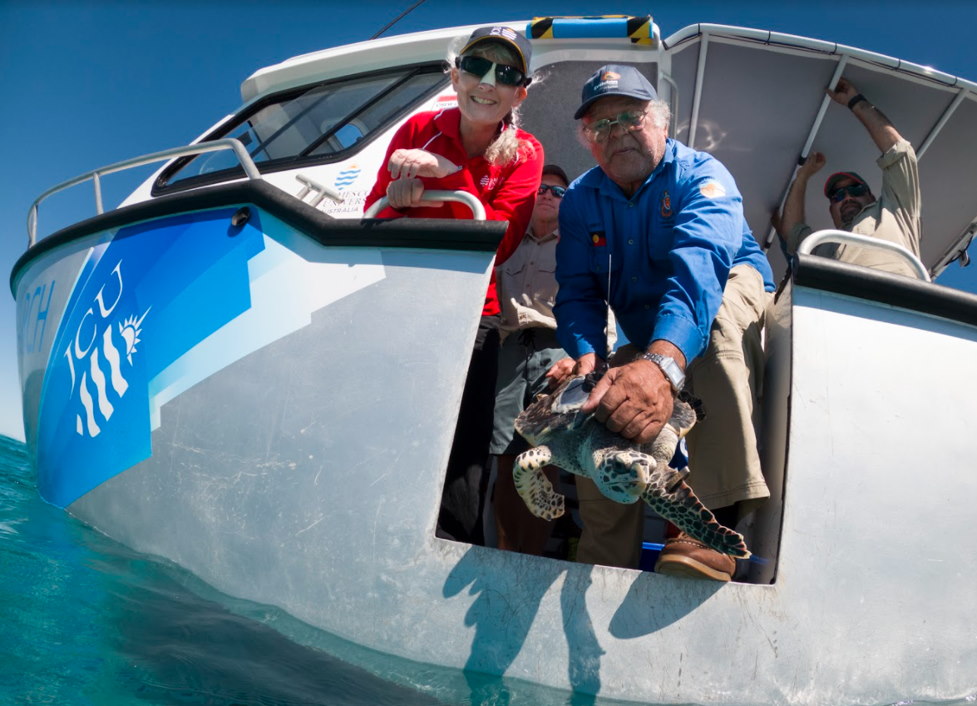Indigenous Education and Research Centre Indigenous Research Support Network Research Projects
Research Projects
- Future Students
- JCU Global Experience
- International Students
- Open Day
- How to apply
- Pathways to university
- Virtual Open Day
- Living on Campus
- Courses
- Publications
- Scholarships
- Parents and Partners
- JCU Heroes Programs
- Aboriginal and Torres Strait Islander in Marine Science
- Elite Athletes
- Defence
- Current Students
- New students
- JCU Orientation
- LearnJCU
- Placements
- CEE
- Unicare Centre and Unicampus Kids
- Graduation
- Off-Campus Students
- JCU Job Ready
- Safety and Wellbeing
- JCU Prizes
- Professional Experience Placement
- Employability Edge
- Art of Academic Writing
- Art of Academic Editing
- Careers and Employability
- Student Equity and Wellbeing
- Career Ready Plan
- Careers at JCU
- Partners and Community
- JCU-CSIRO Partnership
- Alumni
- About JCU
- Reputation and Experience
- Chancellery
- Governance
- Celebrating 50 Years
- Academy
- Indigenous Engagement
- Education Division
- Graduate Research School
- Research and Teaching
- Research Division
- Research and Innovation Services
- CASE
- College of Business, Law and Governance
- College of Healthcare Sciences
- College of Medicine and Dentistry
- College of Science and Engineering
- CPHMVS
- Anthropological Laboratory for Tropical Audiovisual Research (ALTAR)
- Anton Breinl Research Centre
- Agriculture Technology and Adoption Centre (AgTAC)
- Advanced Analytical Centre
- AMHHEC
- Aquaculture Solutions
- AusAsian Mental Health Research Group
- ARCSTA
- Area 61
- Lions Marine Research Trust
- Australian Tropical Herbarium
- Australian Quantum & Classical Transport Physics Group
- Boating and Diving
- Clinical Psychedelic Research Lab
- Centre for Tropical Biosecurity
- Centre for Tropical Bioinformatics and Molecular Biology
- CITBA
- CMT
- Centre for Disaster Solutions
- CSTFA
- Cyclone Testing Station
- The Centre for Disaster Studies
- Daintree Rainforest Observatory
- Fletcherview
- JCU Eduquarium
- JCU Turtle Health Research
- Language and Culture Research Centre
- MARF
- Orpheus
- TESS
- JCU Ideas Lab
- TARL
- eResearch
- Indigenous Education and Research Centre
- Estate
- Work Health and Safety
- Staff
- Discover Nature at JCU
- Cyber Security Hub
- Association of Australian University Secretaries
- Services and Resources Division
- Environmental Research Complex [ERC]
- Foundation for Australian Literary Studies
- Gender Equity Action and Research
- Give to JCU
- Indigenous Legal Needs Project
- Inherent Requirements
- IsoTropics Geochemistry Lab
- IT Services
- JCU Webinars
- JCU Events
- JCU Motorsports
- JCU Sport
- Library
- Mabo Decision: 30 years on
- Marine Geophysics Laboratory
- Office of the Vice Chancellor and President
- Outstanding Alumni
- Pharmacy Full Scope
- Planning for your future
- Policy
- PAHL
- Queensland Research Centre for Peripheral Vascular Disease
- Rapid Assessment Unit
- RDIM
- Researcher Development Portal
- Roderick Centre for Australian Literature and Creative Writing
- Contextual Science for Tropical Coastal Ecosystems
- State of the Tropics
- Strategic Procurement
- Student profiles
- SWIRLnet
- TREAD
- TropEco for Staff and Students
- TQ Maths Hub
- TUDLab
- VAVS Home
- WHOCC for Vector-borne & NTDs
- Media
- Copyright and Terms of Use
- Australian Institute of Tropical Health & Medicine
- Pay review
2022 Active Research Projects

Image: Turtle tagging with Gudjuda Rangers
The Indigenous STEM project is a partnership project between CABAH and Tagai State College to improve the academic performance of Indigenous students in STEM education. The project involves 1600+ Prep to Year 12 Indigenous students across seventeen schools in remote area of Australia.
Strategies for improving educational outcomes of Indigenous students
The study is a partnership between five universities to identify best practice and opportunities for change inside universities and other higher education providers to identify the factors that are either facilitators or barriers to successful completion of study for Indigenous students. The project aims to trial strategies to improve recruitment, retention and successful completions of Aboriginal and Torres Strait Islander students in higher education.
This ARC Centre of Excellence undertakes research to safeguard our national heritage, transform research culture, connect with communities, and inform policy. It aims to inspire Australian children to engage in science and connecting with the broader Australian and global community through a comprehensive research program. It also aims to equip future generations of researchers with a range of interdisciplinary skills, and implement initiatives to nurture the careers of Indigenous and female researchers.
Related Link: https://epicaustralia.org.au/
Contact Professor Martin Nakata or Distinguished Professor Sean Ulm
This project aims to investigate the effectiveness of CQI approaches in the Family Wellbeing Program.
Contact Professor Komla Tsey
A pragmatic trial of participatory women's groups to improve Indigenous maternal and child health
There is strong evidence elsewhere that involving community women in decision-making about strategies to improve the health of mothers and babies is a cheap and effective way of improving health. The WOMB study works in collaboration with service and community partners to explore whether community women's groups improve the quality of maternal and child health care and outcomes in Aboriginal and Torres Strait Islander communities, the cost-effectiveness and mechanism of action.
Related Link: Women's action for Mums and Bubs (WOMB)
Contact Professor Sarah Larkins or Associate Professor Catrina Felton-Busch
A co-designed community rehabilitation service for Cape York communities: feasibility and acceptability.
Contact Dr Alice Cairns
PhD (Health) Project: Indigenous Allied Health Australia Framework: Understanding Culturally safe and responsive healthcare Practices for the development and implementation of a co-designed standardisation tool
Our aim is to enhance the delivery of healthcare services to and with Aboriginal and Torres Strait Islander communities by developing and evaluating a standardised audit tool that measures both cultural safety and responsiveness for IAHA’s Cultural Responsiveness Framework—designed to support the development of action-orientated capabilities for Non-Indigenous Australians working with Aboriginal and Torres Strait Islander people.
Contact Jessica Muller (PhD Student, CPHMVS)